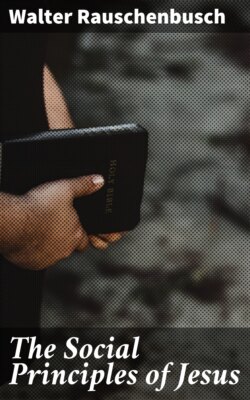Читать книгу The Social Principles of Jesus - Walter Rauschenbusch - Страница 23
На сайте Литреса книга снята с продажи.
Fifth Day: Solidaristic Responsibility
ОглавлениеTable of Contents
Then began he to upbraid the cities wherein most of his mighty works were done, because they repented not. Woe unto thee, Chorazin! woe unto thee, Bethsaida! for if the mighty works had been done in Tyre and Sidon which were done in you, they would have repented long ago in sackcloth and ashes. But I say unto you, it shall be more tolerable for Tyre and Sidon in the day of judgment, than for you. And thou, Capernaum, shalt thou be exalted [pg 021] unto heaven? thou shalt go down unto Hades: for if the mighty works had been done in Sodom which were done in thee, it would have remained until this day. But I say unto you that it shall be more tolerable for the land of Sodom in the day of judgment, than for thee.—Matt. 11:20–24.
We know that by constant common action a social group develops a common spirit and common standards of action, which then assimilate and standardize the actions of its members. Jesus felt the solidarity of the neighborhood groups in Galilee with whom he mingled. He treated them as composite personalities, jointly responsible for their moral decisions.
What groups of which we have been a part in the past have stamped us with the group character for good or evil? How about those of which we are now a part?
What have we learned from the Great War about national solidarity?
